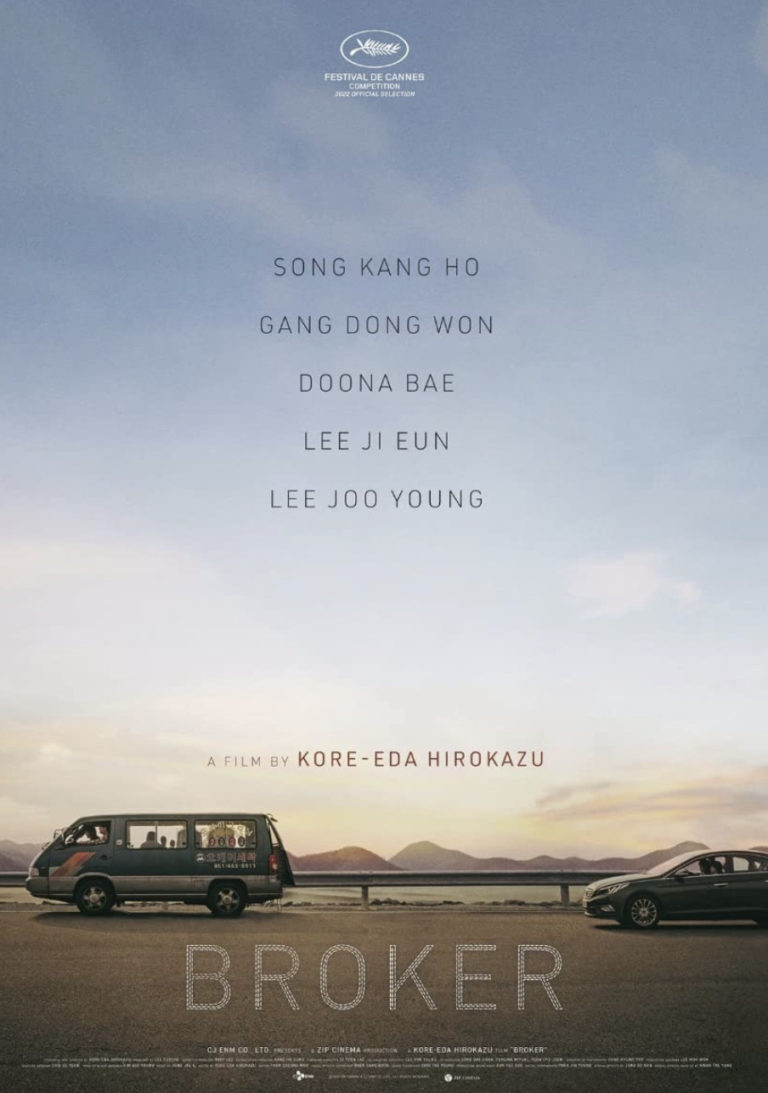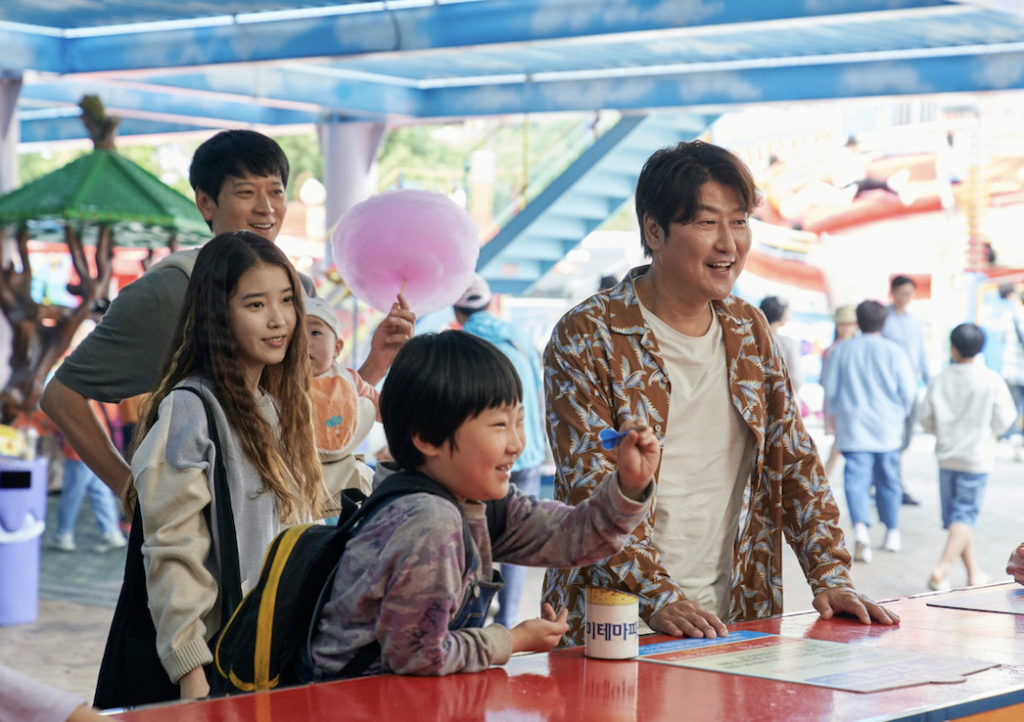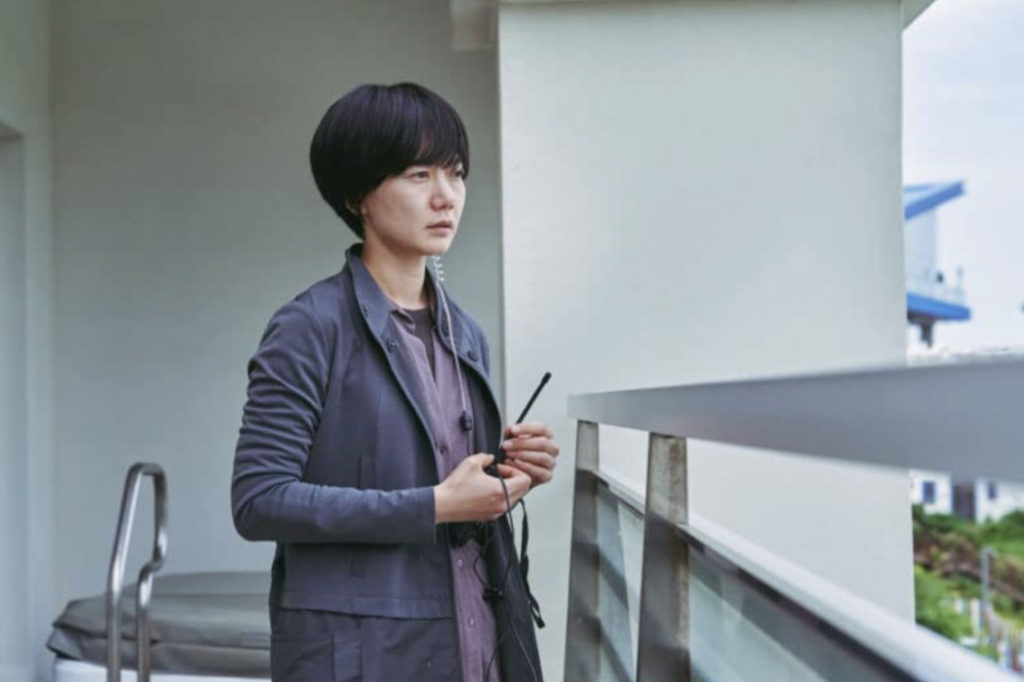
There is no doubt that the Japanese master filmmaker Hirokazu Koreeda is fascinated with family. Not necessary a nuclear family and family bound by blood. In his latest film “Broker”, as in his Golden Palm winner and Oscar nominated “Shoplifters”, he forms an unconventional family of a group of criminals. This time on an unusual road trip with the goal to sell an abandoned baby.
“Parasite” star Song Kang-ho, who won best actor at Cannes film festival for his role, is in the center of things when Koreeda sets his film for the first time in South Korea. Song Kang-ho’s character, and his business partner, collect small infants who are left in so-called “baby boxes”. They, the baby brokers, then sell them on the black market providing wealthy wannabe parents for adoption. This time a young woman leaves her child at a Busan family church but changes her mind the following day. She wants the infant back but ends up joining the brokers on a trip hoping to take her share of the money. Meanwhile two female detectives follow them.
True to his habits and faithful to his style, Koreeda once again creates gentle and understated cinema. His empathetic relationship with his characters, regardless of their flaws, shines through. “Broker” is a sibling film to his “Shoplifters”, where society’s outsiders, bonded by crime, create a family. When he takes us on this unusual trip in a beat up van with his endearing misfits he asks the questions of what truly makes a family and leaves the question unanswered.

This time around Koreeda becomes a bit too sentimental, but with a little help from “Parasite” composer Jung Jae-il he balances things out. “Broker” is not a high water mark like his masterworks “After Life”, “Still Walking” and “Like Father, Like Son”, but it’s a fine, gentle piece of cinema and holds our attention until the very end. Unfolding like a mixture of a heartwarming modern fairy tale and patiently paced chase drama with flashes of humor, he uses his common themes of loss, absence and the lost childhood here as well.
In Koreeda’s film world his characters often deal with someone’s death or absence in some way. He seems interested in showing how events in everyday life, which may seem banal to some, actually have a very big meaning. He seems to believe that it is perhaps necessary that a major event, such as someone’s death or absence, make us see things we would otherwise turn a blind eye to. His characters in “Broker” search for what they have lost and what they are missing. They evolve and a change is within reach.
When Koreeda puts the baby box and a little infant about to be sold in the center, he explores the charged territory of abortion and adoption. He aims to break the common prejudiced against women who give up their children. But also suggests to not blame the mothers but look at it all within a bigger context of the society. These baby boxes are often located outside churches and hospitals in South Korea and Japan. It is an anonymous adoption system where mothers can leave unwanted children to be adopted. When Aimee Mann’s ballad “Wise Up” is played in a car radio, Koreeda refers to Paul Thomas Anderson’s “Magnolia”, a film that looks at lonely souls and the complex relationship between parents and children.

Koreeda likes to put children in the center. Their performances have drawn great admiration, especially in ‘I wish”, ‘Like Father, Like Son” and “Nobody Knows” in which 14-year old Yûya Yagira became the youngest actor in Cannes Film Festival’s history to win the best actor prize. The little 6 months old baby in “Broker” won’t win prizes but perhaps evoke smiles. Besides the baby, Koreeda was able to work with the crème de la crème of Korean cinema. Song Kang-ho (who also played in “The Host”, “Snowpiercer”, “Secret Sunshine”) is stunning, so is popular leading man Gang Dong-won (“Peninsula”), Doona Bea (“The Host”, “Sympathy for Mr. Vengeance”) and K-pop superstar IU (Lee Ji-eun).
The cinematographer Hong Kyung-pyo (“Parasite”, “Snowpiercer” and “Burning”) creates with Koreeda a warm, naturalistic, little universe with a charming bunch of outcasts. A universe that deals with ethics and moral and social issues by balancing humor with seriousness. Like his source of inspiration, the filmmaker Mikio Naruse (”Flouting Clouds”), Koreeda refuses to judge his characters. He is a pure humanist as he incisively reflects on the meaning of family.
Grade : B+
Check out more of Niclas’ articles.
Here’s the trailer of the film.

